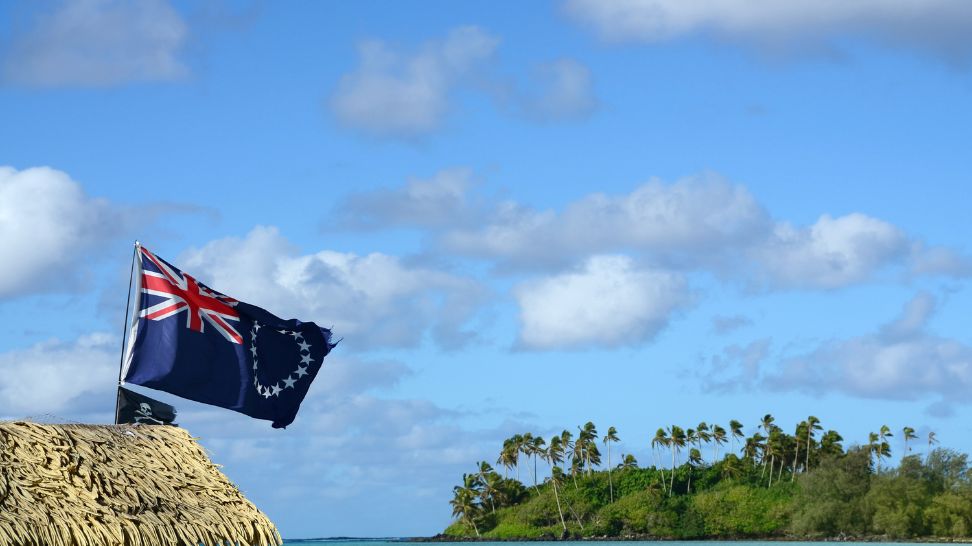Quick Summary
Do offshore LLCs protect personal assets? Yes, they offer strong asset protection by separating personal and company assets, providing creditor protection, and enhancing privacy. This article explains the benefits of offshore LLCs, including holding IRAs, real estate, and investments, while also addressing risks like currency fluctuations, political instability, and high costs.
Offshore LLCs can be a powerful part of an asset protection and estate planning strategy, but choosing the right jurisdiction and legal guidance is essential. More insights and guides on asset protection are available on our blog.
Understanding Offshore LLCs: Benefits and Popular Jurisdictions
Offshore LLCs (limited liability companies) can hold, manage, and protect assets, provide business flexibility, and preserve your privacy.
Many choose to set up an offshore LLC in Saint Kitts and Nevis. Other popular locations include the Cook Islands, Belize, and Singapore.
In this Blake Harris Law article, we will dive deeper into what an offshore LLC is and how it can contribute to your asset protection plan.
But first..
Why Listen to Us?
At Blake Harris Law, our practice centers solely on asset protection. We have assisted clients nationwide and internationally in safeguarding their wealth through LLCs, offshore trusts, and tailored legal solutions.
We know the difference between genuine asset protection and a misleading sense of security that some structures may provide. This article draws on our extensive experience guiding clients through complex risks to develop robust, effective protection strategies.
What Is an offshore LLC?
An offshore LLC is a limited liability company operating under the legal framework of any country other than the United States.S. Companies may decide to move offshore to enjoy freer regulations or increased asset protection.
Despite the negative connotation of the word “offshore,” there’s nothing inherently shady about offshore LLCs. Offshore banking and international business are legitimate as long as you comply with the law and don’t use an offshore LLC for money laundering, tax evasion, or other illicit purposes.
Functions and Benefits of Offshore LLCs
So, why would you decide to open an offshore LLC? Let’s explore how you can use a limited liability company operating outside the U.S.
Operate an IRA Account
An offshore LLC can hold and operate IRAs (investment retirement accounts). This arrangement can protect your IRA from lawsuits, creditor claims, divorce proceedings, and other threats to your retirement funds.
Hold Personal Assets and Investments
Much like offshore trusts, offshore LLCs can hold your investments and assets. The LLC manager functions like a trustee, while LLC members can step into a position similar to trust beneficiaries.
For instance, consider the case of Sunita, an Indian IT consultant who formed a Wyoming LLC. This structure not only provided her with asset protection but also helped her streamline operations and reduce double taxation, enhancing her business’s credibility and access to global banking.
Should you open an offshore trust or an offshore LLC? This would depend on your jurisdiction’s reporting requirements and your desired degree of protection and control over your assets. A skilled lawyer can suggest the right asset protection strategy for your needs.
Hold Real Estate Abroad
An offshore LLC is a simple and comparatively affordable vehicle for holding foreign real estate. You can apply for loans and purchase property as a limited liability company rather than under your name. Maria, a Brazilian fintech entrepreneur, for example, used a Delaware LLC to expand into the US market. This allowed her to secure funding, protect her assets, and benefit from tax advantages, ultimately improving her business’s financial stability.
Gain the Benefits of Asset Protection
While domestic trusts and LLCs provide some asset protection, you gain a much higher degree of security when you move your wealth offshore.
Using an offshore LLC to hold your assets helps minimize personal liability in situations like bankruptcy, lawsuits, or liability claims. Generally, the higher your net worth is, the more susceptible you are to claims (for example, if you work in a high-liability profession), the more you can gain by setting up an offshore LLC.
Cons of An Offshore LLC
While offshore LLCs are extremely useful for asset protection, establishing one involves some drawbacks of which you should be aware to avoid potential pitfalls.
Currency Fluctuation
When operating offshore, you’re exposed to fluctuations in currency and exchange rates if you are holding foreign currency. That’s a risk you should take into account when budgeting for LLC management.
Political Circumstances
Regional instability and geopolitical tensions can also put offshore LLCs at risk. Tax conditions, labor laws, and general safety and security all play a role in how your LLC functions. That’s why it’s vital to work with an experienced asset protection attorney who will help you select a stable, secure location for your offshore company.
Environmental Policies
Depending on the nature of your business, environmental policies may restrict your company’s operations. Complying with environmental regulations may mean extra costs and more complex reporting processes.
High Expenses
Registering an offshore LLC may cost thousands or tens of thousands of dollars. Once your company is up and running, you’ll also need to handle annual fees and various management costs.
Local Requirements
When setting up an offshore company, you must comply with the local laws. This may involve filing reports with the local authorities and other administrative processes. Non-compliance could result in heavy penalties and even criminal proceedings.
Offshore LLCs for Asset Protection
So, how would an offshore LLC work to protect your assets?
Legal Framework
An LLC is a legal structure that offers liability protection for its owners. In simpler terms, you separate the assets you own personally from LLC assets, so any property the company holds should not be subject to liability claims against you. A corporation works much the same way, but an LLC is simpler and more flexible.
Offshore LLCs operate under a foreign jurisdiction, which can give you the benefits of lower taxation and business-friendly regulations.
Offshore Jurisdiction Selection
Selecting the right jurisdiction is a crucial step in setting up your offshore LLC. St. Kitts and Nevis is a popular choice thanks to its political stability, asset protection safeguards, and laws that protect the privacy of foreign investors. Singapore, Belize, the Cayman Islands, and the Cook Islands are other jurisdictions with favorable conditions for offshore LLCs.
Creditor Protection
Placing property in an offshore LLC can give your assets ironclad protection from creditor claims. Foreign jurisdictions don’t recognize U.S. court judgments, so to target your offshore LLC, a creditor would need to navigate the local legal system and face extensive costs. Such a suit would almost certainly fail in a jurisdiction with asset protection laws that favor foreign investors.
Offshore LLCs offer significant creditor protection due to the legal frameworks in their jurisdictions. For example, in Nevis, creditors must post a $100,000 bond before pursuing claims against an LLC, and there is a two-year statute of limitations for fraudulent transfers. This makes it extremely difficult for creditors to successfully challenge asset protection structures.
Privacy and Confidentiality
Operating your LLC offshore gives you a lot more privacy compared to running a U.S.-based company. For instance, you wouldn’t need to list a Nevis LLC on public records.
An offshore LLC keeps your financial and personal information protected. This is a major consideration in an age of eroding privacy and tightening restrictions on businesses.
For instance, Oliver, a British digital nomad, formed a New Mexico LLC, which not only provided him with substantial tax savings but also enhanced his professional image and ensured his financial information remained confidential.
Estate Planning and Wealth Transfer
Setting up an offshore LLC can form part of your broad estate plan. For example, you can arrange to transfer company shares to successors in the event of your passing. This strategy can help reduce estate taxes, ensure the LLC keeps running smoothly no matter what happens, and serve as an alternative or addition to setting up an offshore trust.
Like a trust, an offshore LLC can help families avoid probate in some circumstances. Thanks to the flexibility of an LLC, it’s possible to consolidate all assets into a single legal structure, making life easier for beneficiaries and estate administrators.
In estate planning, offshore LLCs can be instrumental. For example, by structuring an LLC to hold assets and arranging for the transfer of shares to successors, families can minimize estate taxes and ensure smooth wealth transfer, as seen in the case of high-net-worth individuals who use offshore structures to protect their legacies.
Advanced Asset Protection: Using Multiple Offshore Jurisdictions
While a single offshore LLC can provide robust asset protection, some individuals seek even greater security by leveraging multiple offshore jurisdictions. This advanced strategy involves structuring assets across different countries, creating additional layers of protection that can make it significantly more challenging for creditors or litigants to access your wealth.
The Prevalence of Asset Protection Planning
Asset protection is a significant concern for high-net-worth individuals. In fact, 60% of America’s millionaires have considered asset protection planning, highlighting the importance of such strategies in preserving wealth. For those in high-risk professions, such as physicians, who face a 31.2% chance of being sued during their career, the need for robust asset protection is even more critical.
How It Works
Using multiple jurisdictions allows for the creation of layered structures that enhance privacy and security. For example:
- A trust in the Cook Islands can hold liquid assets like cryptocurrencies, stocks, and bonds.
- An LLC in Nevis can manage intellectual property, business assets, and real estate.
- A foundation in Panama can be used for philanthropic purposes, such as cash donations to charities.
This multi-tiered approach ensures that creditors would need to navigate multiple legal systems, significantly increasing the complexity and cost of any potential claims.
Real-Life Examples and Case Studies
Several real-life examples illustrate the effectiveness of multi-jurisdictional strategies:
- Tech Whistleblower: In 2020, a European tech whistleblower exposed a major corporation’s illegal surveillance software. Fearing retaliation, he relocated to Central America and used an International Business Company (IBC) in Dominica to manage his freelance IT consultancy. By using a nominee director, he shielded his identity from commercial databases and minimized exposure to legal actions from his former employer.
- Protecting from Domestic Abuse: In a 2025 case study a Middle Eastern woman used a Cook Islands trust and a Belize IBC to safeguard her inheritance and income from an abusive spouse. This structure allowed her to relocate to Southern Europe and restructure her digital presence, ensuring her financial independence.
Nonetheless, while this approach offers strong protection, it also comes with notable costs and important considerations:
Costs and Considerations
Implementing multi-jurisdictional asset protection strategies involves significant costs:
- Initial Setup Fees: Trust deed drafting can range from $1,000 to $5,000, while offshore LLC formation costs between $500 and $3,000.
- Annual Maintenance Fees: Trustee services for trusts can cost $2,000 to $10,000 per year, and LLC management fees range from $1,000 to $5,000 annually.
- Privacy Services: Using nominee directors or trustees can add $500 to $2,000 yearly.
- Management Fees for Trusts: Offshore trusts may require management fees of $10,000 to $50,000 annually.
Despite these costs, the benefits of enhanced protection and privacy often outweigh the expenses for high-net-worth individuals.
- Maximum Protection: For high-net-worth individuals or those in high-risk professions, a single offshore LLC may not provide sufficient security. Multi-jurisdictional structures offer an additional layer of defense.
- Flexibility: Different jurisdictions may be better suited for specific types of assets or business activities. For instance, Nevis is known for its strong asset protection laws, while Singapore offers business-friendly regulations and tax advantages.
Challenges and Considerations
Aside from cost, there are other several important challenges and considerations to keep in mind when managing business operations or investments across different countries.. These factors can impact the effectiveness, cost, and legality of multi-jurisdictional structures. The main points to consider include:
- Legal Complexity: Managing structures across multiple jurisdictions requires a deep understanding of international law, tax treaties, and regulatory frameworks. Non-compliance can lead to significant legal and financial consequences.
- Higher Costs: Setting up and maintaining multi-jurisdictional structures can be more expensive than a single offshore LLC, involving additional registration fees, legal fees, and ongoing administrative costs.
- Coordination: Ensuring that all entities comply with their respective jurisdictions’ requirements can be challenging without expert guidance.
Comparison of Single vs. Multi-Jurisdictional Strategies
| Aspect | Single Jurisdiction (Single Offshore LLC) | Multiple Jurisdictions (Layered Structures) |
| Protection Level | Strong, depending on jurisdiction (e.g., Nevis, Cook Islands) | Enhanced, with additional layers complicating creditor access |
| Privacy | High, especially in privacy-friendly jurisdictions | Potentially higher, with assets spread across multiple systems |
| Cost | Moderate, including setup and annual fees | Higher, with additional registration and legal fees |
| Complexity | Relatively straightforward, easier to manage | High, requires coordination across jurisdictions |
| Risk Diversification | Limited, tied to one jurisdiction’s laws and stability | Improved, reduces risk from changes in any single jurisdiction |
| Suitability | Ideal for straightforward asset protection needs | Best for high-net-worth individuals with complex needs |
The Role of an Asset Protection Attorney
Crafting a multi-jurisdictional asset protection strategy is not a task for the inexperienced. It requires meticulous planning and a thorough understanding of both domestic and international laws. An experienced asset protection attorney can:
- Help you select the most suitable jurisdictions based on your specific needs and goals.
- Ensure compliance with all legal and tax obligations.
- Design a structure that maximizes protection while minimizing risks.
- Provide ongoing support to maintain and adapt your strategy as laws or circumstances change.
At Blake Harris Law, we specialize in advanced asset protection strategies, including multi-jurisdictional planning. Our team of attorneys has the expertise to guide you through the complexities of international law and create a tailored solution that safeguards your wealth effectively.
Is It Right for You?
While multi-jurisdictional strategies can offer unparalleled protection, they are not necessary for everyone. If your asset protection needs are straightforward, a single offshore LLC may suffice. However, for those facing heightened risks—such as high-profile individuals, business owners in litigious industries, or those with significant global assets—this approach can provide peace of mind and an extra layer of security.
From basic setups to advanced multi-jurisdictional structures, offshore LLCs provide a robust framework for safeguarding wealth. However, it’s crucial to work with experienced legal professionals to navigate the complexities and ensure compliance with all applicable laws.
Considering an offshore LLC? Consult Blake Harris Law
Are you ready to tap into all the benefits of offshore LLCs? Contact us at Blake Harris Law, a law firm focusing on advanced wealth protection strategies. Attorney Blake Harris will guide you through the process of setting up an offshore limited liability company to safeguard your hard-earned assets. Schedule your consultation today.



